- Management News
- 2017 Tour Schedule & TV Guide
- Match Reports
- Match Previews
- Travel Packages
- Lions Tour Tickets
- The History
- The Management
- New Zealand 2017
- Australia 2013
- Sat 3 Jun Prov XV Lions 7 13
- Wed 7 Jun Blues Lions 22 16
- Sat 10 Jun Crusaders Lions 3 12
- Tue 13 Jun Highlanders Lions 23 22
- Sat 17 Jun Maori ABs Lions 10 32
- Tue 20 Jun Chiefs Lions 6 34
- Sat 24 Jun New Z Lions 30 15
- Tue 27 Jun Hurricanes Lions 31 31
- Sat 1 Jul New Z Lions 21 24
- Sat 8 Jul New Z Lions 15 15
- Sat 1 Jun Barbarians Lions 8 59
- Wed 5 Jun W Force Lions 17 69
- Sat 8 Jun Qld Reds Lions 12 22
- Tue 11 Jun NSW-QLD Lions 0 64
- Sat 15 Jun Waratahs Lions 17 47
- Tue 18 Jun Brumbies Lions 14 12
- Sat 22 Jun Australia Lions 21 23
- Tue 25 Jun Rebels Lions 0 35
- Sat 26 Jun Australia Lions 16 15
- Sat 6 Jul Australia Lions 16 41
- Gregor Townsend Named British & Irish Lions Coach
- British & Irish Lions 2021 Fixtures Announced
- New Zealand 15 British & Irish Lions 15
- New Zealand 21 British & Irish Lions 24
- Hurricanes 31 British & Irish Lions 31
- New Zealand 30 British & Irish Lions 15
- Chiefs 6 British & Irish Lions 34
- Maori All Blacks 10 British & Irish Lions 32
- Highlanders 23 British & Irish Lions 22
- Stuart Hogg Out Of Lions Tour

1968 South Africa
- Updated: 6th June 2012
Having suffered many series defeats against the Springboks over the years, the Lions were fully expectant of what was in store for them in this tour.
Although the tourists suffered a 3-0 loss once again to the Boks, they left with pride a little bit restored after the hammerings they had taken in orevious tours.
Injuries once again played a major part in the shaping of the test team, but the first three tests were extremely close affairs with the first test loss of 25-20, second test drawn at 6-6 and third test loss of 11-6.
With the series effectively over the Lions lost the fourth test by 19-6, but the good work by the Lions was not to be undone.
Irish Full Back and tour captain Tom Kiernan kept the Lions hopes alive with a record points haul of 35 in the 4 test matches and after the damaged reputations following the 1966 tour some pride was restored.
Share this:
- Click to share on Twitter (Opens in new window)
- Click to share on Facebook (Opens in new window)
- Click to share on Google+ (Opens in new window)
- Click to share on Tumblr (Opens in new window)
- Click to share on Reddit (Opens in new window)
- Click to share on Pinterest (Opens in new window)
- Click to email this to a friend (Opens in new window)
- Click to print (Opens in new window)
Related Posts
Your email address will not be published. Required fields are marked *
Save my name, email, and website in this browser for the next time I comment.
Notify me of follow-up comments by email.
Notify me of new posts by email.
When not writing articles about the latest issues surrounding the game, Ben spends his time worrying about the fortunes of his beloved Saracens. Ben is responsible for overseeing all output from the L-T.com team and often can't help himself from adding his own take on the issues of the day and has to pen his own article to stick his two-penneth in. Ben also runs our travel section and is a font of all knowledge about the tours having travelled as a tourist on all three tours. He can tell you everything you need to know about touring with the British & Irish Lions from how to get there and where to stay, to where you can hang around to spot the players and where you can get the best steaks in town...! Email Ben - [email protected]
Jakim sposobem mój Kasyno Blik oszczędza mi okres
To na rzecz polskich graczach spore udogodnienie, bo MiFinity to e-portfel, który kumpli na liście metod płatności w mnóstwo...
Copyright © 2015 Lions-Tour.com.
- International edition
- Australia edition
- Europe edition
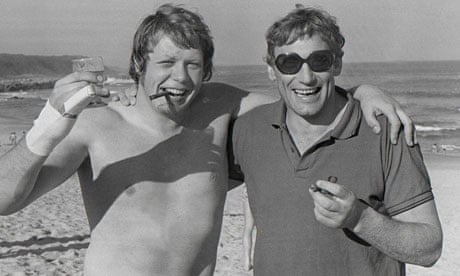
A history of Lions tours: 'Drinking bouts, unpaid debts, girls in tears'
W illie John McBride stood in his underpants and surveyed the scene in front of him. The wreckage of his hotel lobby lay all around, with, as Willie John recalled it, pieces of tables, bits of chair and other furniture strewn about and, in the thick of it, "a dozen drunken Lions, all out of their tree". He clenched his pipe between his teeth till its tip bobbed up towards his nose, then turned towards the hotel manager, who was, at that precise moment in the early hours of the morning, dripping wet and hopping up and down on one foot. "What," Willie John said to the manager, "seems to be the problem?"
The Lions might have got away with it if it hadn't been for Bobby Windsor. It would have had to have been Bobby. The Welsh hooker was one of those players who just could not help but take things a little too far. It was Bobby who took the blame when Tommy David's bed was shoved out of a window on to the hotel awning down below. He had the misfortune to be standing in the shot when a local photographer took a snap of the scene.
"I was known as 'the fireman'," Bobby said, "because I was the one who put the fires out." Literally. That night, after the Lions' 28-9 victory over South Africa in the second Test of 1974, "someone", Bobby remembered, "had set light to a load of empty cardboard beer boxes. So I got the fire extinguisher off the wall, but I couldn't get it to work. So I grabbed a hose pump and used that instead." Flushed with pride at having fulfilled his civic duty, Windsor was somewhat surprised to find himself being berated by the hotel manager across the pile of soggy, steaming cardboard. "He was being a right prat," Bobby said. "So I gave him a right good drenching as well."
Roger Uttley, the English forward, was sober enough to know that he had better run and get the captain, Willie John. "Roger was banging on my door at 3am, shouting that there was a bit of trouble and I was needed downstairs." McBride strolled out, in his pants, pausing only to pick up his pipe because "I never go anywhere without it, especially in times of crisis".
"In the midst of all this carnage there was an extremely irate hotel manager, shouting and screaming." For some reason, when Willie John, naked but for his pants and pipe, asked him what the matter was, the manager snapped and said he was going to call the police.
"Now,"
Willie John thought to himself, "I'd seen the riot police in operation in South Africa and didn't like the images my mind was conjuring up. I could see hordes of them rushing through the door and I didn't think they'd be asking for autographs from these drunken idiots."
Willie John paused and saw the next morning's headlines in his mind. "Drunken Lions darken rugby's name". He considered the situation. Sucked on his pipe. "Excuse me, but if you are going to get the police," he said to the manager with a smile, "do you think there will be many of them?"
That was that. The Lions left the next morning, but not before they had completed one last little ritual, every bit as entrenched in Lions tradition as the selection of an uncapped player: the tour manager handed over a cheque to compensate the hotel owner for all the damage done.
Both those rituals are long gone now. This is the fifth Lions tour of the professional era, and the last uncapped player to be picked for the squad was Will Greenwood in 1997. Back then, as Keith Wood has said, "the game had just turned professional, but there was still a lot of the amateur ethos". It was just wild enough to make the current trip to Australia seem pretty tame. The prop Adam Jones has described his average day in the camp before this tour as "Wake up. Cryotherapy. Breakfast. Train. Cryotherapy. Lunch. Train. Cryotherapy. Dinner. Sleep."
The dullest boys on tour, Jones says, are the teetotallers, who include the captain, Sam Warburton. Brian O'Driscoll says the only chance the drinkers do have to "unwind and have a few beers together" is on the evening after an afternoon kick-off. After the 22-12 win against Queensland Reds, he said, "the non-playing 23 went home early. By the time the others got in, it was midnight. Some of the boys were already in bed. It is not as conducive to hanging out after games."
Quite right too. Modern media coverage does not allow players to get away with much, and professionalism means that even if they could, many of them wouldn't want to. Under Gatland and Warburton, the Welsh turned all-but teetotal at the 2011 World Cup, allowing those who "feel they need it" a "bottle or two" of beer after a match to relax. You couldn't wring too many war stories out of all that on the after-dinner speaking circuit. But everyone remembers England's dwarf-tossing, ferry-diving escapades. Most people won't need reminding, either, which team was two points away from making the final and which was dumped out in disgrace in the quarters.
The Lions, though, have seen it all before. When they toured New Zealand in 1908 the English forward Percy Down took a dive off the side of a ferry in the very same spot as Manu Tuilagi did, in Auckland harbour 103 years later. Down did a somersault over the railing. The main difference was that six of his team-mates followed him overboard, one of them giving himself such a bad case of concussion as he hit the water that he missed the next match.
By then the Lions already had a reputation for making trouble. On their very first tour, in 1888, the local papers in Australia carried reports complaining about their "Rowdyism on the Railway" between Newcastle and Armidale, when "three galoots invaded a private first class carriage, guzzled tea without paying, smashed the cups and saucers, and left the solitary passenger to stand the racket".
So began 109 years of raising Cain. The 1968 Lions were accused of being the "worst-behaved team ever to tour South Africa" by the Johannesburg Sunday Times. The sage rugby writer JBG Thomas refuted this on the grounds that, unlike at least one lot of their predecessors, "they have never set fire to a railway carriage". That may have been true. But a couple of them did incinerate a pile of blazers belonging to their team-mates in a bonfire on the tarmac at Kimberley airport after what was described as an "airborne cheese and wine party".
"They have left a trail of havoc and stunned incredulity after three days in East London," thundered the Sunday Times. "Marked by severe drinking bouts, riotous behaviour at hotels and nightclubs. They left broken hotel doors, broken glasses by the dozen, unpaid liquor debts and girls in tears because of outright rudeness."
In New Zealand in 1977 the local girls were crying again, out of boredom rather than rudeness. That was the tour when the infamous "Wanda from Wanganui" told the press that she had slept with four of the tourists and found them to be "lousy lovers, boring, self-centred, ruthless, always on the make and anything but exciting bedmates. Give me the down to earth Kiwi male any day".
The squad were called a "pack of animals" on that trip, which was the tour which featured the Irish pair of Moss Keane, nicknamed "rent-a-storm", and Willie Duggan, perhaps the last of the real hell-raisers. Duggan had what he called "a pathological dislike of training", his one concession to fitness being a breakfast of half a dozen raw eggs on the morning of the match. Ollie Campbell remembers how he used to be able to tell which dressing room toilet Duggan was in before a match by the clouds of smoke billowing over the cubicle door. "I always had the philosophy," Duggan said, "that if you took 30 players out for a night and made sure they were well pissed before they went to bed at 3am, then got them up at 8am, trained the bejaysus out of them, then you would know who was up to lasting 80 minutes in an international."
Duggan's great mate Keane would have passed easily enough. Keane cultivated a fear of flying just so, his team-mates reckoned, it was taken for granted that he had to have five or six pints before he got on a plane or he wouldn't be able to travel. In 1977 he was in such a state when he got a last-minute call-up that he had a crash on the way to the airport, then left a message for his mother saying "the car is at the airport, it's written off, see you in four months".
The king of them all, though, was Blair "Paddy" Mayne, a man who has every claim to being the hardest-drinking, free-est-swinging firebrand in the long history of the Lions. Mayne was an Irish lock, and one-time university heavyweight boxing champion. He toured in 1938, when his great running gag, the centre Harry McKibbin said, was to burst into his team-mates' rooms in the middle of the night, knocking the doors off the hinges, and then systematically smash up all furniture, Keith Moon-style. "Until," McKibbin said, "all the chairs and tables and things were just so much bits of kindling around us in the room while we were still in bed."
The management despaired of Mayne, who used to run around with the Welsh hooker (what is it about Welsh hookers?) Bunner Travers. The two of them dressed up as sailors and snuck off to the Durban docks just so they could pick fights with the local longshoremen. When they got to Ellis Park, they found that the stands were being erected by a team of convicts from the local prison who were sleeping in a compound underneath the scaffolding.
Blair and Bunner befriended one of them, and asked him what he had done to merit a prison sentence. "Stealing chickens," he said. "And I've been given a seven-year stretch." Full of sympathy for their new companion, who they nicknamed "Rooster", Blair and Bunner returned that night with a pair of bolt cutters and some spare clothes. They sprung Rooster, and set him free. When he was caught the next day, it turned out the jacket he was wearing still had Mayne's name stitched inside the collar.
In desperation, the management decided to make Mayne share a room with the fly-half George Cromey, who also happened to be a Presbyterian minister. Even Cromey couldn't stop Mayne sneaking off from an official dinner to go on a late-night hunting trip with a group of men he'd met who were carrying rifles and lamplights. Cromey waited up for his room-mate till 3am, and then, just as he was nodding off, Mayne broke down the door and announced "I've just shot a springbok".
Cromey said his blood ran cold. And then he turned on the light, and saw Mayne, still wearing his cummerbund, with a dead antelope draped over his shoulders. "Jimmy Unwin has been complaining that the meat here isn't as fresh as it is back home," Mayne announced. So he took himself off to his team-mate Unwin's room, broke down that door too, and tossed the beast into his bed. The trouble was that, in all the confusion, Unwin cut his leg on the antelope's horn. That wouldn't do. So Mayne decided to deposit it outside the room of the South Africa manager, with a note saying: "A gift of fresh meat from the British Isles touring team."
Well, that did it. Even though the captain, Sammy Walker, was a great friend of his, Mayne knew that the management were going to tan his hide for that. So he scarpered. The team didn't see him for three days, till he turned up, still in his suit, to meet them on board the ship they were sailing home on.
And if those stories sound a little far-fetched, as though, like all the best tales, they have gained a little in the telling, well, they've nothing on what he did next. Mayne became one of the founding members of the SAS in the second world war . He was recruited out of a prison cell, where he had been sent after striking a senior officer "because he bored me". His bravery won him the Distinguished Service Order with three bars, the Légion d'honneur, and the Croix de Guerre .
Rugby has gained a lot from professionalism but it has a lost a little something too. On the pitch the 2013 Lions may play better rugby than most of their predecessors managed – harder, faster, and tougher, but off it, they're not a patch on the ones who came before them.
- British & Irish Lions
- Australia rugby union team
- Lions tour 2013
- Rugby union
- Australia sport
Comments (…)
Most viewed.
- searchSportsTeamPlayers...
- Live scores
- Next 7 days fixtures
- International fixtures
- Last 7 days results
- International results
Live Sports
Communication error please reload the page.
F1 - Abu Dhabi GP
- Full results
ESPN Other Live >>
About cookies.
To help make this website better, to improve and personalize your experience and for advertising purposes, are you happy to accept cookies and other technologies.
1968 British Lions tour to South Africa
In 1968 the British Lions toured South Africa. The tour was not success in terms of international results, the Lions losing the Test series against South Africa by three matches to nil, with the other match drawn. The Lions won 15 of their 16 non-international matches, losing only to Transvaal. The touring party was captained by Tom Kiernan , coached by Ronnie Dawson and managed by David Brooks .
As well as South Africa, games were played against South West Africa (the future Namibia , then part of South Africa) and Rhodesia (the future Zimbabwe ).
Unlike the previous two tours to South Africa ( 1955 and 1962 ), this British Lions team did not stop off in Nairobi , Kenya , to play East Africa on the way home. However, one member of this tour party was later to play against that team; in 1975 Peter Stagg was living in Zambia and playing rugby for the Ndola Wanderers RFC when the Tuskers visited and he played for Zambia in their first international on 31 August 1975 at Kitwe . Six of the squad would ultimately change codes and play professional rugby league , they are; Mike Coulman , Ken Goodall , Keith Jarrett , Keri Jones , Maurice Richards , and Bryan West .
- Barry Bresnihan ( University College Dublin and Ireland )
- Gordon Connell ( London Scottish and Scotland )
- Gerald Davies ( Cardiff and Wales )
- Gareth Edwards (Cardiff and Wales)
- Mike Gibson ( North of Ireland FC and Ireland)
- Bob Hiller ( Harlequins and England )
- Sandy Hinshelwood ( London Scottish and Scotland)
- Keith Jarrett ( Newport and Wales)
- Barry John (Cardiff and Wales)
- Keri Jones (Cardiff and Wales)
- Tom Kiernan (capt) ( Cork Constitution and Ireland)
- Billy Raybould ( London Welsh and Wales)
- Maurice Richards (Cardiff and Wales)
- Keith Savage ( Northampton and England)
- Jock Turner ( Gala and Scotland)
- Roger Young ( Queen's University RFC and Ireland)
- Rodger Arneil ( Edinburgh Academicals and Scotland)
- Mike Coulman ( Moseley and England)
- Mick Doyle ( Blackrock College and Ireland)
- Ken Goodall ( City of Derry and Ireland)
- Tony Horton ( Blackheath and England)
- Peter Larter (Northampton and England)
- Willie John McBride ( Ballymena and Ireland)
- Syd Millar (Ballymena and Ireland)
- John O'Shea (Cardiff and Wales)
- John Pullin ( Bristol and England)
- Peter Stagg ( Sale and Scotland)
- John Taylor (London Welsh and Wales)
- Bob Taylor (Northampton and England)
- Jim Telfer ( Melrose and Scotland)
- Delme Thomas ( Llanelli and Wales)
- Bryan West (Northampton and England)
- Jeff Young (Harrogate and Wales)
- Lua error in package.lua at line 80: module 'strict' not found.
- EngvarB from March 2014
- Use dmy dates from March 2014
- 1968 rugby union tours
- British and Irish Lions tours
- Rugby union tours of South Africa
- Rugby union tours of Zimbabwe
- Rugby union tours of Namibia
- 1968 in South African rugby union
- 1968 in Irish sport
- 1968–69 in English rugby union
- 1968–69 in Welsh rugby union
- 1968–69 in Scottish rugby union
- 1968–69 in British rugby union
- Pages with script errors
Navigation menu
Personal tools.
- Request account
- View source
- View history
- Recent changes
- Random page
- Infogalactic News
- Buy an account
- What links here
- Related changes
- Special pages
- Printable version
- Permanent link
- Page information
- Cite this page
- This page was last modified on 10 April 2016, at 19:19.
- Content is available under Creative Commons Attribution-ShareAlike License unless otherwise noted.
- This article's content derived from Wikipedia, the Free Encyclopedia ( See original source ).
- Privacy policy
- About Infogalactic: the planetary knowledge core
- Disclaimers
- Mobile view
- Live on Sky
- Get Sky Sports
- Sky Mobile Apps
- Kick It Out
- Black Lives Matter
- British South Asians in Football
Rugby Union
Lions tour 1968
British and Irish Lions restored some pride despite losing the Test series against South Africa.
Saturday 20 April 2013 16:08, UK
Another injury-ravaged British and Irish Lions team were easily brushed aside by South Africa, but installed the fighting spirit that had gone missing against New Zealand two years before.
- The Masters: Åberg hunts Scheffler in epic final-day tussle LIVE!
- FREE STREAM: EFL 2024 awards LIVE!
- Merson: Title race over for Arsenal | Arteta: We face big test
- Alonso’s Leverkusen achievement is one for the ages
- Villa stun Arsenal as two late goals dent title hopes
- Klopp feeling 'rubbish' but will not give up on the title
- The Masters: Latest leaderboard
- Transfer Centre LIVE! Man Utd line up £80m summer Branthwaite bid
- Xhaka stunner and Wirtz hat-trick inspire Leverkusen to first Bundesliga title
- 21 shots, six on target - wasteful Liverpool stunned by Palace
- Latest News

How to watch Premier League, EFL, WSL, The Masters and more
- Stream with NOW

- Upgrade Now
Press Enter or Return to begin your search.
Barry John: All Hail The King
Wales' second golden age was one of the greatest teams in the history of the game, and at its heart was the mercurial Barry John, one of the greatest players ever to grace the field.
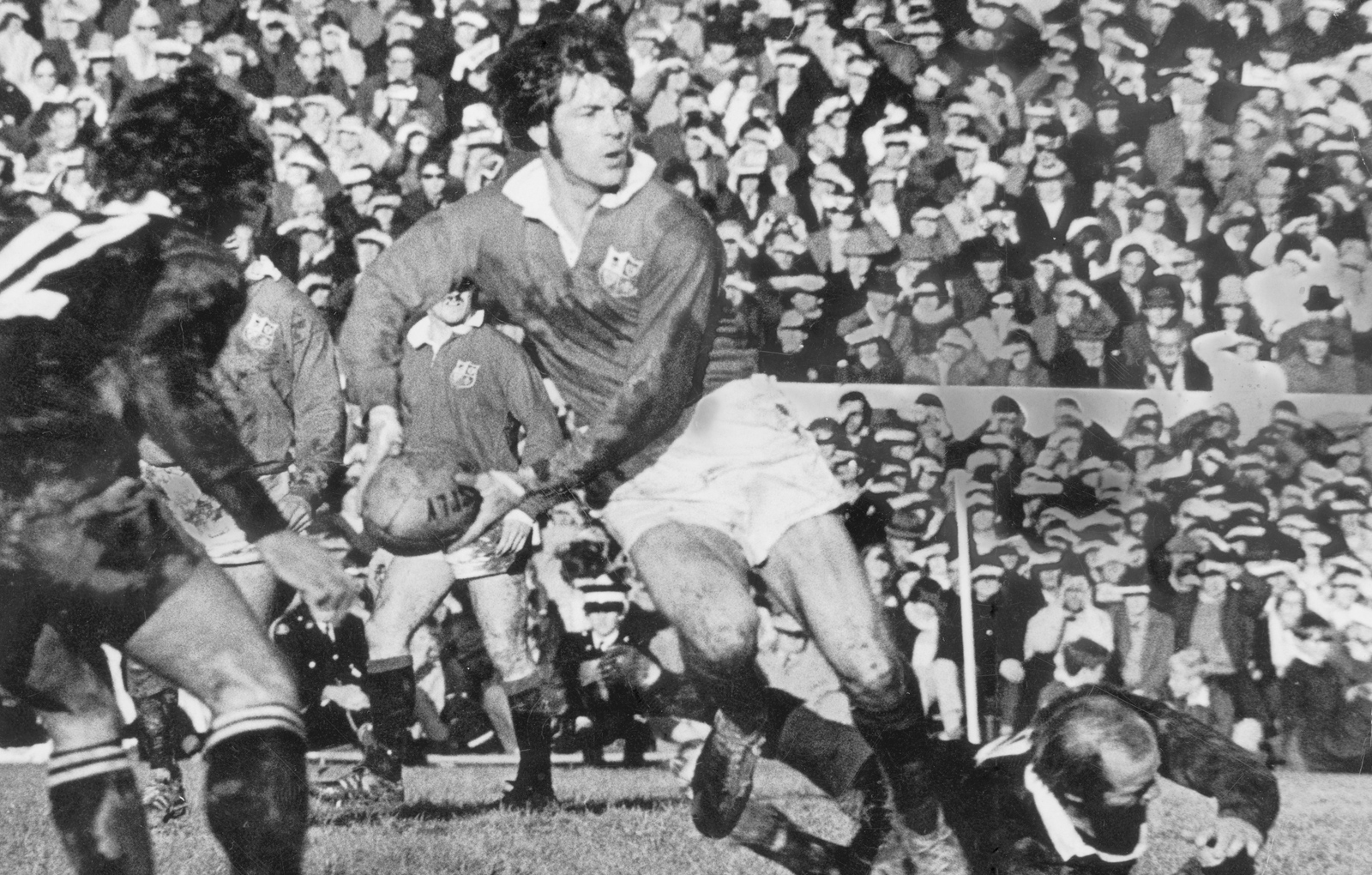
The All Blacks were in a panic.
After the first test of the 1971 Lions’ tour, New Zealand fullback Fergie McCormick’s international career looked set to be over, such was the devastation wrought by the quality of kicking from the Lions’ outside half. The All Blacks were left having to make their selections based on the threat that one man posed.
That man was Barry John, The King.
The 1971 tour to New Zealand is littered with stars, but none shone so brightly as the Welshman, whose innate ability, instinct and calm was one of the key reasons the team remain the only Lions side to win in New Zealand.
John’s international career didn’t start as well as it had finished though. Touring Australia in 1966, he was introduced as a replacement to the tiring David Watkins, who had been captain of the Lions side that had toured the country in the same year. Despite playing against what was described as an experimental Australian side, Wales lost the game by 14 points to 11, and John was criticised for a poor performance.
When 1967 came around, he was included in the starting line up for the opening game of the Five Nations against Scotland, but carrying an injury, he put in another poor performance and was subsequently dropped. Wales managed a single victory, beating perennial rivals England in Cardiff. Watkins was the man at 10 that day, but it wasn’t enough to stop Wales from finishing in last place.
An inauspicious start.
While the outset of his international career seemingly went against him, his club form for Llanelli gave witness to the genius within.
John was born in January 1945, in Cefneithin, a village that also produced the 1971 Lions winning coach Carwyn James. Some nine miles north of Llanelli, it wasn’t long before the talented youngster found himself at Stradey Park, making his first top-flight appearance for the club while still a teenager in 1964. Llanelli would lose the game, but not before John had scored and converted a try.
Even at this early stage of his career, he was noted for being a very gifted footballer, capable of punting the ball with unfailing accuracy, pinning the opposition back. There was more to his game though; incredible footwork allowed him to take a defence on, and his timing and precision in his pass opened up the game for those outside him. He rose above his contemporaries with incredible talent and instinct.
His stock rose through the 1964/65 season as he made his mark on the Welsh domestic game, and his impressive performances against Swansea through the 1965/66 season brought the call up to the 1966 Australia tour in which he would earn his first test cap. As we have learnt, Wales lost that game, but a month later, John was able to gain the upper hand by beating the touring Wallabies with his club side, Llanelli.
By 1967, having appeared twice for Wales and failing to set the international stage alight, John left Llanelli to join Cardiff. Here, he would form a partnership that would redefine Welsh rugby, and terrorise the All Blacks; his scrum half would be Gareth Edwards.
Barry John had regained his international place after David Watkins had made the cross-code switch to Salford, but again, his international career spluttered before it had started. Nothing in this fixture suggested that the pairing of John and Edwards would go on to be one of the greatest in the history of rugby; a rain soaked boggy field, and a strong wind doused any hopes of an entertaining fixture. Edwards couldn’t settle, and John’s compass was broken. The game was over as a contest when Bill Davies was gifted an easy try from a wayward pass by John Jeffrey, and New Zealand won the game 13 points to 8.
When 1968 came around, it brought with it a Lions tour to South Africa, but again, lady luck failed to smile upon John. Having played in three matches against provincial sides, he was selected to play in the first test. Quarter of an hour into proceedings, as he dashed for the line, he was brought down upon the hard ground by Jan Ellis, breaking his collarbone.
1969 brought a raft of changes to the Welsh side going into the Five Nations championship. In the first fixture against Scotland, five players were dropped, and debuts were handed to players such as J.P.R Williams and Mervyn Davies.
Little did anyone know that this was the beginning of the greatest era of Welsh rugby.
A victory in the opening fixture against Scotland saw John score his first international try, and the game was always in the Welshman’s favour. From there, they welcomed Ireland to the Arms Park, who having beaten England in their previous fixture, were on a seven match unbeaten run with designs on the Grand Slam.
The Welsh despatched them with consummate ease, their forwards dominating proceedings. John controlled the game with his kicking and remained an ever potent threat with his drop-kicking ability.
A draw against France denied Wales the Grand Slam, but the Triple Crown was secured with an emphatic victory over England. While John scored himself, the game is best remembered for the four tries scored by Maurice Richards.
Wales’ dominion was set to begin.
The partnership between John and Edwards lit up the 1971 Five Nations championship. Seen as the greatest squad ever to be fielded by Wales, the team beat the home nations to acquire the Triple Crown, before defeating France in their final match to win the Grand Slam. John would have a fantastic tournament, and later in the year would be selected to tour New Zealand with the British Lions.
John had not had the best experience when he had last visited New Zealand, with Wales back in 1969. Beaten soundly in both tests by the All Blacks, they managed only minor redemption in beating Australia and Fiji on the way home. John was determined not to let the same happen again.
Under the guidance of the man from his home town, Carwyn James, John would cement his status as a legend of the game, playing some incredible rugby. Despite the opening game of the tour against Queensland ending in a loss for the touring side, win was followed by win, and by the time the first test had come around, Barry John had played six games.
With the luxury of steady ball that the dominant pack afforded him, John’s consummate kicking kept the All Blacks on the back foot throughout the match. Two penalties from John and a try from Ian McLauchlan earned the Lions a 9 points to 3 victory. Terrorised fullback Fergie McCormick would never play for his country again.
The All Blacks were in a panic.
New Zealand were left having to make their selections based on the threat one man posed.
The second test was a resounding defeat for the tourists. The home side had clearly made the right changes to their team, but many of the Lions would later admit that they had perhaps gone into this second test overconfident after their victory in the first.
Either way, the series was tied going into the third game, and a win became paramount.
There was no arrogance to Barry John, he just had a confidence in his own ability and an assuredness that permeated to his team-mates. His ability to appear composed with the ball and in control at all times was a mental support for those around him as much as it sapped the morale of the opposition.
His try in the third test set the Lions on their way, and with two conversions and a drop goal, John finished the game having scored 10 of the Lions’ 13 points.
He returned from the tour a hero. Christened ‘The King’ by the New Zealand press, he had marked his name into the history books.
Within a year however, he had retired from rugby at the age of 27.
Rugby was now an amateur sport in a televised age, and Barry John had become the most recognisable star in the game. The expectations and pressure applied to the shoulders of young men by so many people would take their toll. Indeed, John cited these pressures from the country and the media as the reason he retired. There was no support network in place that could advise players, or indeed any pay structures. These were amateur players doing it for the love of the game, and these pressures were undoubtably an incredible burden.
Barry John possessed a poise and grace when running with the ball in hand. He would glide effortlessly, almost swaying past defenders, and it is hard to see how he compares to modern greats when the game is so different.
Jonny Wilkinson is renowned for his hard work on the training field. The hours and hours of practice he put in delivered a glittering career, and it’s hard not to wonder just how good Barry John could have been if he had been afforded the comparative luxuries players have today.
Watch back any videos of the Five Nations championships from the early 70s and you can quickly see the soggy, mud soaked pitches. Quite how a player could play so effortlessly, and control the ball so well when it was greasy and wet really is something. Indeed, if one considers the balls used then too, that he could do what he could becomes all the more miraculous.
His majesty on the field of play has rarely been matched, and he remains a golden boy in a golden age of Welsh rugby.

Filed under: Legend Series , Wales Written by: Edward Kerr Follow: @edwardrkerr · @therugbymag
Latest Features
Stay up to date.
If you have enjoyed our writing, we would love you to follow us to stay up to date.
If you would like to receive an email when we add a new article to the site, please enter your address below.
Recommended
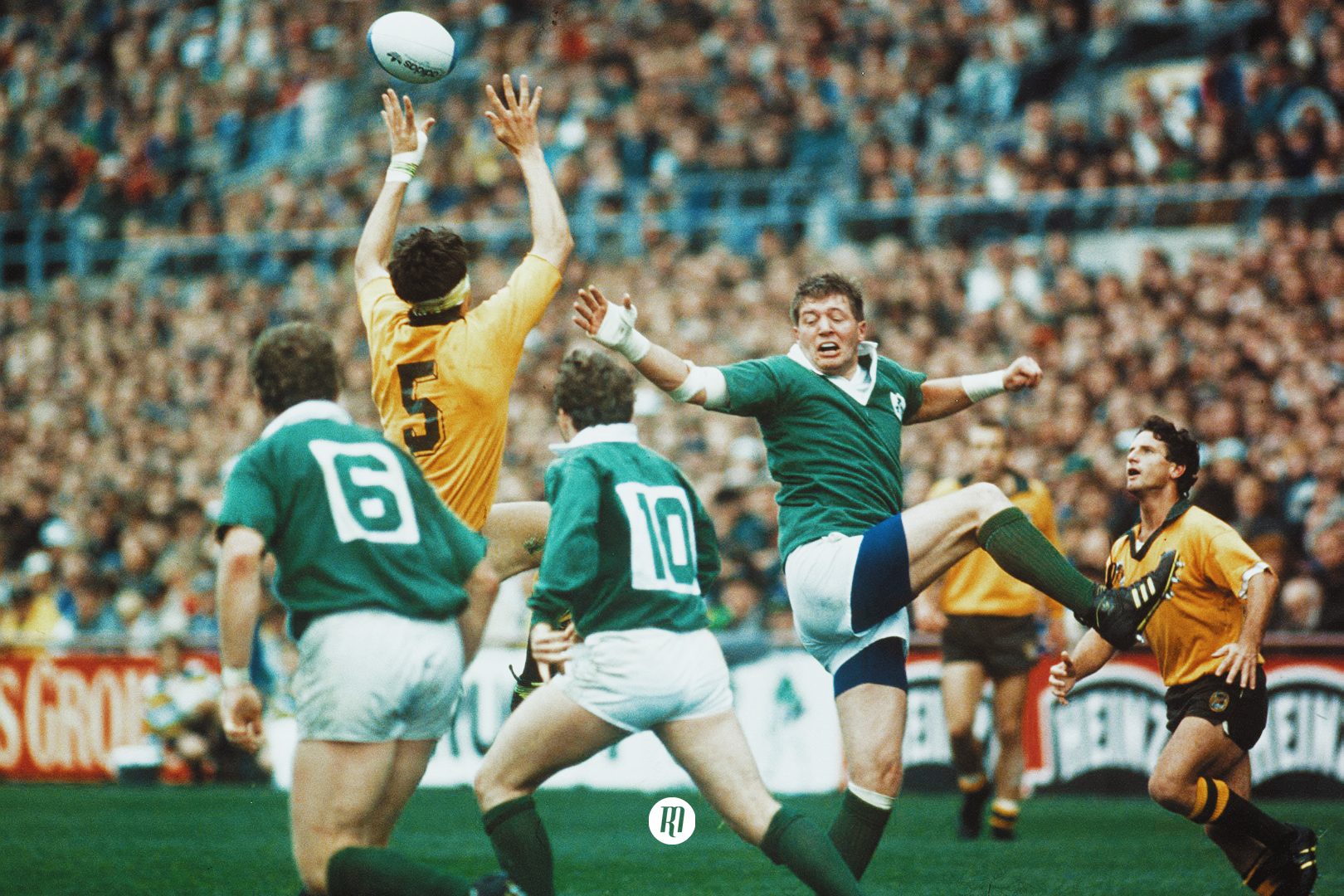
Five classic Rugby World Cup quarter-finals
Legend Series
By Graeme Peacock
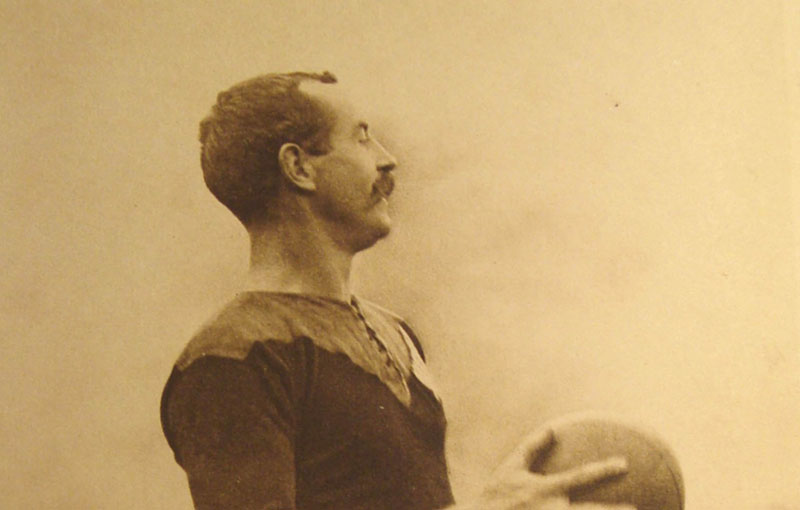
David Gallaher: The Detached Wing Forward
By Edward Kerr
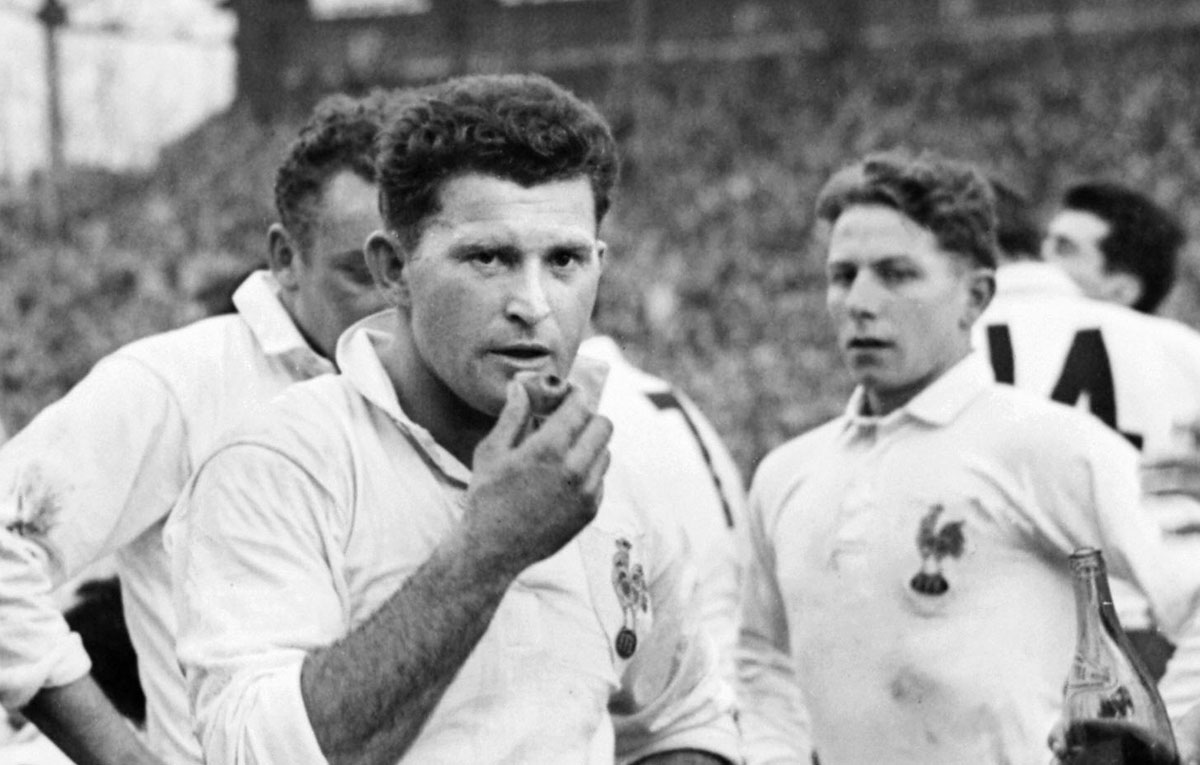
Jean Prat: The First to 50
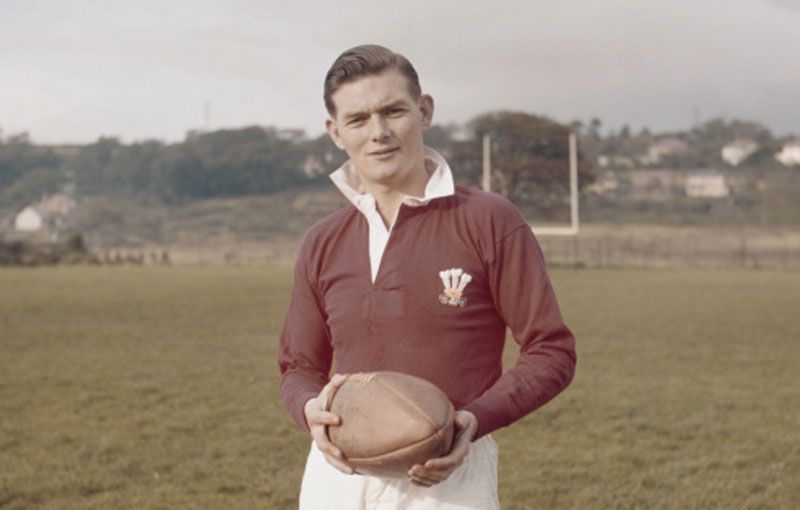

Carwyn James: The Greatest Coach Wales Never Had
By Craig Muncey
We're constantly writing new material, and we would love you to like or follow us to stay up to date.

Photograph - British Lions 1968 South Africa Tour
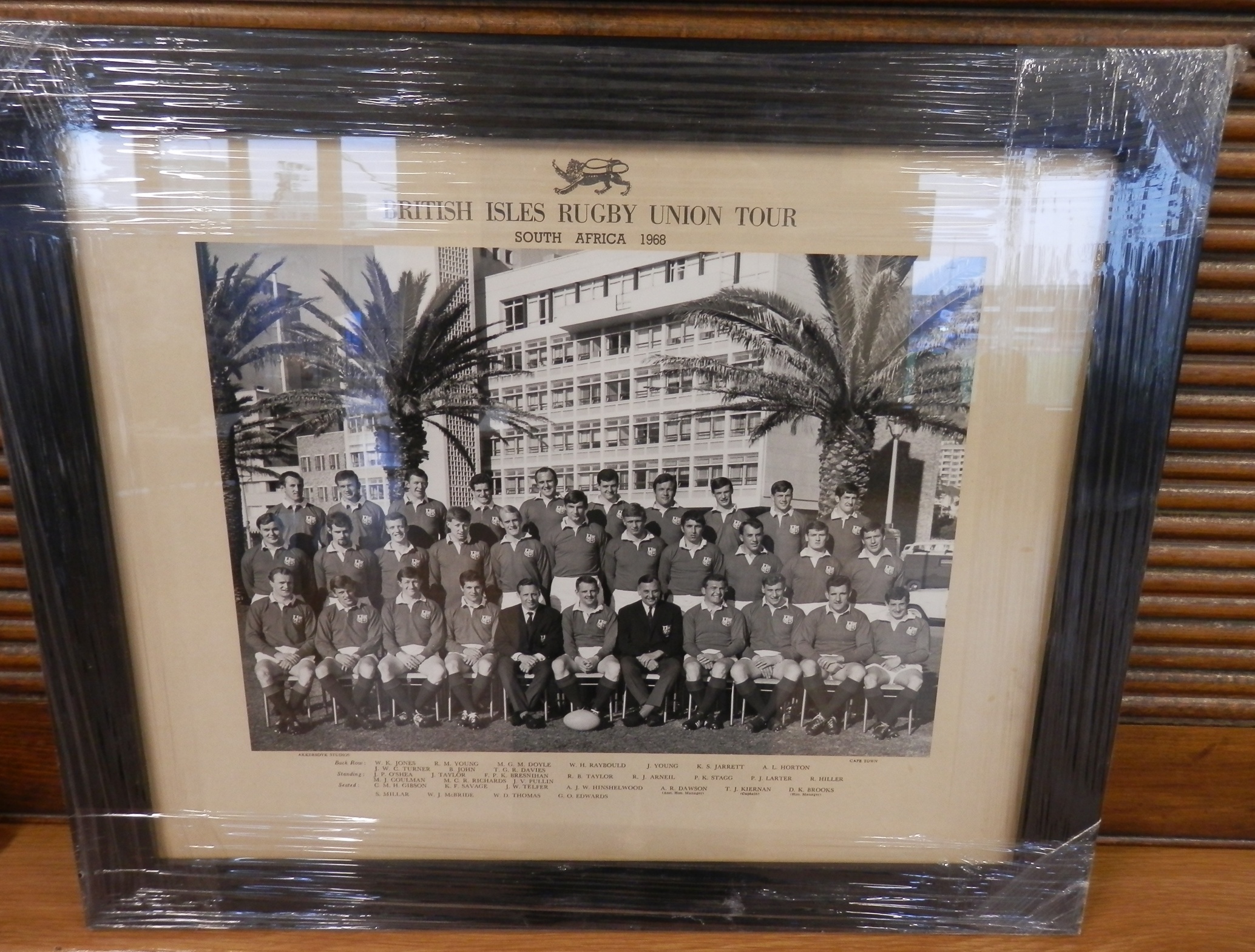
Global Head of Wildlife Research, World Animal Protection, and Visiting Researcher, Wildlife Conservation Research Unit (WildCRU), University of Oxford
Wildlife Research Manager at World Animal Protection and Visiting Research Fellow, Manchester Metropolitan University
Wildlife Research Manager at World Animal Protection, and Visiting Research Fellow, Manchester Metropolitan University
Disclosure statement
Neil D’Cruze works for an international NGO, World Animal Protection as the Global Head of Wildlife Research.
Angie Elwin works for an international NGO, World Animal Protection as a Wildlife Research Manager.
Jennah Green works for an international NGO, World Animal Protection, as a Wildlife Research Manager.
University of Oxford and Manchester Metropolitan University provide funding as members of The Conversation UK.
View all partners
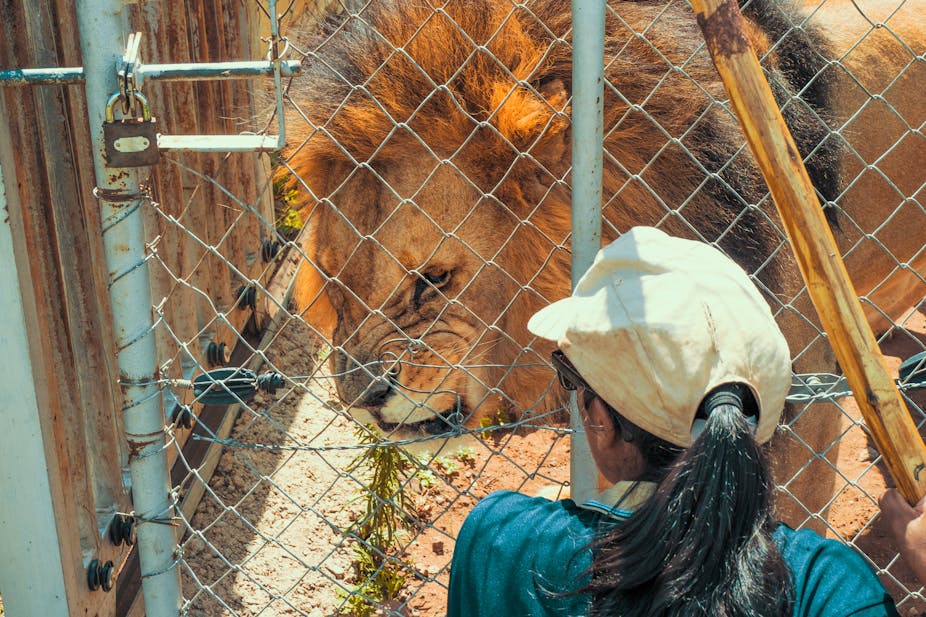
The South African government has officially confirmed that captive lion farms will be shut down. A new ministerial task team report just released has cemented the government’s intention, first made public in 2021 , to put an end to African lions being legally sold and traded live, both internationally and domestically.
It also heralds the end of “canned” trophy hunting , where lions are confined to an enclosed space and hunted down, with no chance of escape.
We are wildlife researchers who have studied lion farming in South Africa. We believe that this latest development is a significant milestone in ending this controversial industry and provides some clarity on the next steps.
However, we are concerned that the government has not yet provided any definitive deadlines for closing down the industry. The government is also suggesting that “canned” hunts will be allowed to continue during an undefined phasing out period. We outline why a deadline is urgently required.
Why lion farming is being shut down
The ministerial task team’s decision came after years of objections by conservationists and researchers about the substandard conditions and the unregulated nature of the commercial lion farming industry. Captive lions on farms often live in filthy , overcrowded enclosures and in conditions that fail to meet their basic hygiene, diet and veterinary needs.
The export of lion bones originating from lion farms has been illegal since 2019. This followed a high court ruling in which the export quota – the maximum number of lion skeletons that could be legally exported – was declared unconstitutional based on animal cruelty concerns.
Read more: Lions are still being farmed in South Africa for hunters and tourism – they shouldn't be
Illegal and unethical activities associated with the industry were also a factor which led a team of traditional leaders, lion farmers and scientists to conclude in a high-level panel report released in 2020 that captive lion farming was tarnishing the country’s reputation. This report added that the trade threatened South Africa’s global standing as a leader in the conservation of wildlife and as a country and destination with iconic wild lions.
Since 2022, a task team formed by the minister of forestry, fisheries and the environment has been looking for ways to close captive lion facilities.
A promising decision for lions
We’re hopeful about the new ministerial report because it confirms that in the long run it will be compulsory for lion farms to close down.
The report is also helpful because it details different options. It gives specific advice on how to take care of healthy lions and stop them from breeding during the phasing out period. It also talks about how to humanely euthanise sick or injured lions and safely dispose of their bodies.
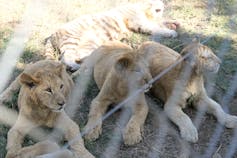
The report also outlines how it intends to use private sector funds to buy up lion bone stockpiles before destroying them. This is likely to be good news for many conservationists and animal welfare advocates who were worried that exporting lion bones might increase demand in Asia for illegally obtained lion parts.
Another positive aspect of the report is that it acknowledges the risks of releasing captive bred lions into the wild, like the danger of them attacking people or livestock and spreading diseases to wild lion populations. Instead of releasing them, the report suggests creating “safe havens” where healthy lions can live out their lives without breeding or interacting with humans, except for veterinary care.
The government must act with urgency
The government has realised that simply hoping lion farmers will stop on their own won’t fix the problem. Now, they’re saying it’s crucial to make it compulsory to stop commercial captive lion breeding in South Africa. This is a big step forward.
However, it’s a concern that the government still hasn’t set a clear deadline for farmers to stop breeding lions commercially and participating in any lion related trade.
Read more: Captive lion breeding in South Africa: the case for a total ban
What’s especially worrying is that the government supports a “trade out exit” plan. This means that instead of being directly compensated for closing down their farms, the captive lion farmers will still be allowed to sell “canned” hunting and trade domestically in live lions, their skeletons, and other lion products while the industry is being phased out.
Without firm deadlines, it is not clear how long lions will continue to suffer in poor conditions. During the phase out period, legal trade could act as a cover for criminal activities, and these facilities will remain a threat to public health and safety. Urgent action is needed to rectify this.
In the coming years, we’ll see how challenging it is for a country to shut down a long standing, mostly unregulated industry like commercial captive lion breeding. This will be an important example for other countries considering starting or stopping similar industries with wild animals.
- lion hunting
- Natural world

Faculty of Law - Academic Appointment Opportunities

Operations Manager

Senior Education Technologist

Audience Development Coordinator (fixed-term maternity cover)

Lecturer (Hindi-Urdu)
We've detected unusual activity from your computer network
To continue, please click the box below to let us know you're not a robot.
Why did this happen?
Please make sure your browser supports JavaScript and cookies and that you are not blocking them from loading. For more information you can review our Terms of Service and Cookie Policy .
For inquiries related to this message please contact our support team and provide the reference ID below.

IMAGES
VIDEO
COMMENTS
1. 3. In 1968 the British Lions toured South Africa. The tour was not successful in terms of international results, the Lions losing the Test series against South Africa by three matches to nil, with the other match drawn. The Lions won 15 of their 16 non-international matches, losing only to Transvaal. The touring party was captained by Tom ...
1968 South Africa. Having suffered many series defeats against the Springboks over the years, the Lions were fully expectant of what was in store for them in this tour. Although the tourists suffered a 3-0 loss once again to the Boks, they left with pride a little bit restored after the hammerings they had taken in orevious tours.
In 1968 the British Lions toured South Africa. The tour was not successful in terms of international results, the Lions losing the Test series against South Africa by three matches to nil, with the other match drawn. The Lions won 15 of their 16 non-international matches, losing only to Transvaal. The touring party was captained by Tom Kiernan, coached by Ronnie Dawson and managed by David Brooks.
The 1968 Lions were accused of being the "worst-behaved team ever to tour South Africa" by the Johannesburg Sunday Times. The sage rugby writer JBG Thomas refuted this on the grounds that, unlike ...
Against all the odds and amid a pandemic, The British & Irish Lions managed to successfully stage a Tour to South Africa in 2021. 2021 - A Lions Tour like no other. ... Tom Kiernan's 1968 tourists may have lost the Test series against South Africa 3-0 with one match drawn, but they re-established the Lions spirit and took the first steps ...
The Lions won the first two series between the two sides in 1891 and 1896, including wins in the first six matches, but then did not win another series until their unbeaten 1974 tour. After South Africa's victory in the 1980 series , the two teams did not meet again until 1997 as a result of apartheid sanctions; the Lions won the 1997 series ...
The South Africa preparing for the 1968 Lions was in the midst of apartheid. Widespread unrest and spiralling violence was drawing the attention of a world, and opposition to the political regime in power was growing stronger by the day. ... And the 2009 Lions tour will be no exception. "The difference nowadays is today there are patterns of ...
Scrum.com's coverage of the British and Irish Lions tour to South Africa 2009. Live scores and the latest rugby union news and features. Menu ESPN. searchSportsTeamPlayers... Football Football. Home Home; ... Jun 8, 1968 : South Africa 25 - 20 British and Irish Lions: Jun 22, 1968 : South Africa 6 - 6 British and Irish Lions: Jul 13, 1968
As well as South Africa, games were played against South West Africa (the future Namibia, then part of South Africa) and Rhodesia (the future Zimbabwe). Unlike the previous two tours to South Africa (1955 and 1962), this British Lions team did not stop off in Nairobi, Kenya, to play East Africa on the way home.
Saturday 20 April 2013 16:08, UK. Another injury-ravaged British and Irish Lions team were easily brushed aside by South Africa, but installed the fighting spirit that had gone missing against New ...
Pages in category "British & Irish Lions tours of South Africa" The following 14 pages are in this category, out of 14 total. This list may not reflect recent changes .
After the first test of the 1971 Lions' tour, New Zealand fullback Fergie McCormick's international career looked set to be over, such was the devastation wrought by the quality of kicking from the Lions' outside half. ... When 1968 came around, it brought with it a Lions tour to South Africa, but again, lady luck failed to smile upon ...
The image remains seared in John Taylor's mind some 50 years on from the Lions tour to South Africa in 1968.. Walking down the street in Port Elizabeth, a black man coming the other way passed ...
Photograph - British Lions 1968 South Africa Tour. Object Id: 0655. Season: 1967/1968. Category: Photograph. Object Status: CAC Collection. Keywords: Lions. Previous Next. Help Us. If you have any information about this or any other object please ...
Use fewer keywords. Browse Getty Images' premium collection of high-quality, authentic 1968 British Lions Tour To South Africa stock photos, royalty-free images, and pictures. 1968 British Lions Tour To South Africa stock photos are available in a variety of sizes and formats to fit your needs.
Full-back Tom Kiernan led The British & Irish Lions on the 1968 Tour of South Africa, and despite losing the series 3-0, he emerged as top Test points scorer with 35 to his name. The Irishman also featured on the 1962 Tour, before leading the side out six years later, but never managed to claim a win in a Lions jersey, with a 6-6 draw in the ...
In 1968 the British Lions toured South Africa. The tour was not successful in terms of international results, the Lions losing the Test series against South Africa by three matches to nil, with the other match drawn. The Lions won 15 of their 16 non-international matches, losing only to Transvaal.
The 1962 tour to South Africa saw the Lions still win 16 of their 25 games, but did not fare well against the Springboks, losing three of the four tests. ... The 1968 tour of South Africa saw the Lions win 15 of their 16 provincial matches, but the team actually lost three tests against the Springboks and drew one.
In 1968 the British Lions toured South Africa. The tour was not successful in terms of international results, the Lions losing the Test series against South Africa by three matches to nil, with the other match drawn. The Lions won 15 of their 16 non-international matches, losing only to Transvaal.
1968 British Lions tour to South Africa Top # 6 Facts
The South African government has finally decided to shut down the captive lion industry, but has not set a deadline for when lion breeding and hunting will end. South Africa is to shut down ...
South Africa is working out what to do with the world's biggest captive lion population and more than 3,000 skeletons as it tries to end a trade in the big cats and their products.
In 1962 the British Lions rugby union team toured Southern and Eastern Africa. Overall the tourists played twenty-five matches, winning sixteen, losing five and drawing four. The Lions were unsuccessful in the test series against South Africa, losing by three matches to nil with one match drawn.The first three tests were close; the first match was drawn 3-3 and South Africa won the second 3 ...